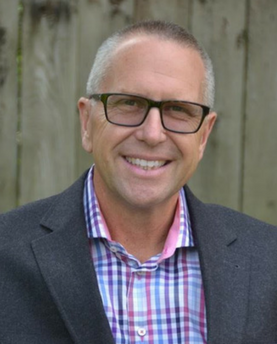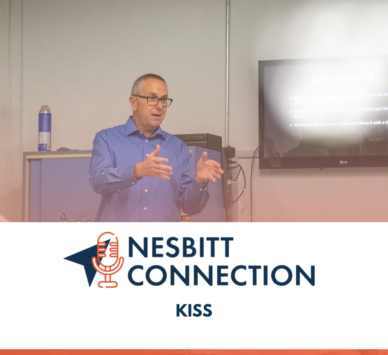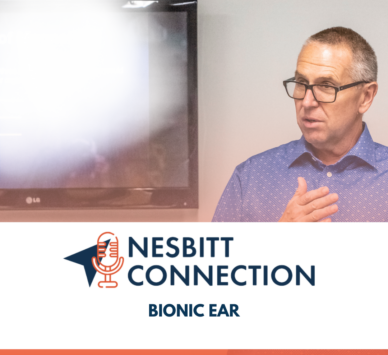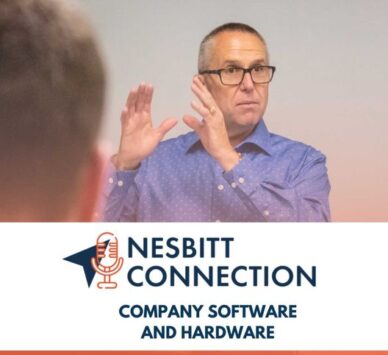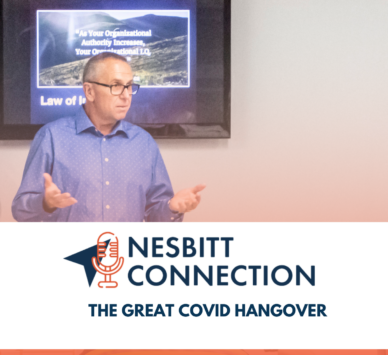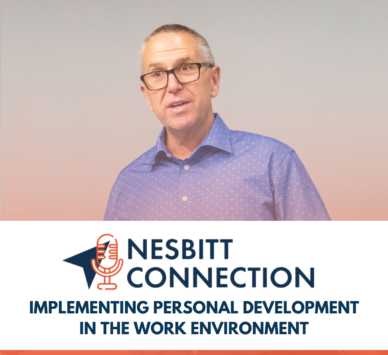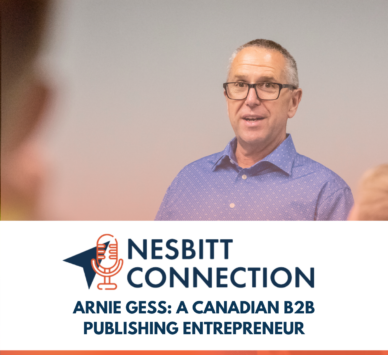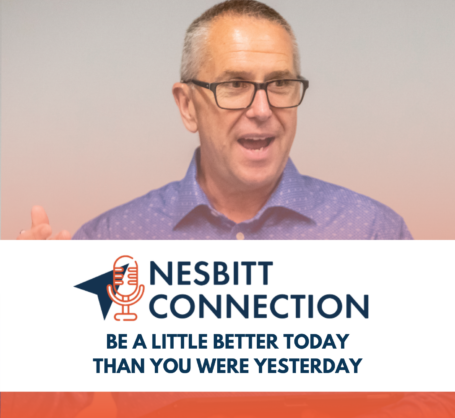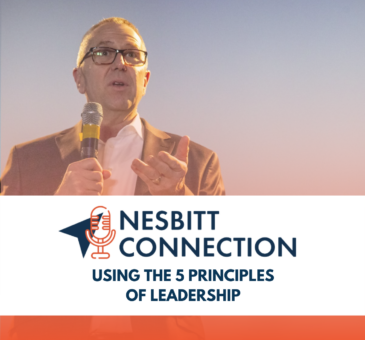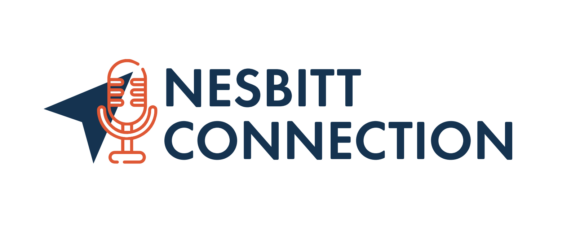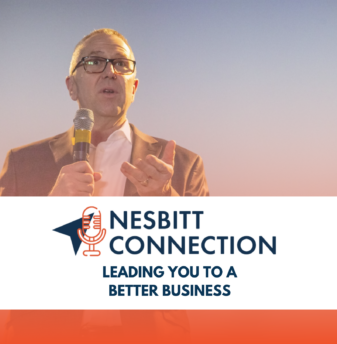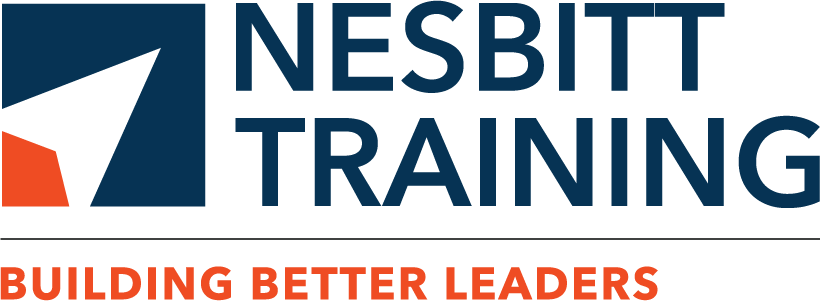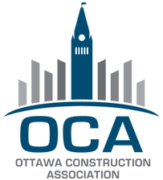
Podcasts

Nesbitt Connection Podcast
My Story
I decided to start my own podcast series. I thought I should start with telling my own story. From the time I was in high school to where I am now. I never thought of myself as an academic, more of a hands on learner. I've always know the industry I wanted to be in so I started out working at my dad's company. It turned out, I was really good at yelling at truck drivers, as a result I got my first leadership role shortly after moving to Alberta. Around this time I received a self-help book called "Think and Grow Rich", this book launched me on a journey of learning and immense growth. This prompted me to move back to Ontario. Over the next few years and a few different jobs I learned some valuable leadership insights. Communication, trust and knowledge. I continued my education through books, seminars and real world experiences until one day I was approached by The John Maxwell Foundation and asked to become a Leadership Coach. Given my experience and knowledge, I thought this would be a great opportunity to share my story with others on a similar path and empower them to make a difference.
"Be better tomorrow than you are today" - Mark Nesbitt
Bionic Ear
Recently, I’ve undergone some surgery and it’s been an incredible learning experience from start to finish. Along the way, I’ve made quite a few noteworthy observations which I believe are worth sharing, as they may carry important meaning for those in the construction industry and beyond.
Company Hardware & Software
Computers are comprised of both software and hardware. One can't work without the other's help.
Companies aren’t much different. In this day and age, it’s easy for the leaders and those in charge to neglect those on the ground doing hard work. This needs to change if you want your company to be successful.
The Great COVID Hangover
On this episode of the Nesbitt Connection podcast, I’ll discuss what I call “The Great COVID Hangover” and its negative impact on workplace efficiency and company culture across a variety of industries. I’ll also touch on the importance of regularly talking with your people, along with the dangers of not listening when they just might have something valuable to say.
Implementing Personal Development in the Work Environment
Persistence is key, as when you stumble and fall, you are the only one who can lift yourself up off the ground and keep going. Competition will lead you to better yourself, as success will place you against others who are just as successful. These are a few of the many valuable life lessons I’ve learned from long-distance running. In this Nesbitt Connection podcast, I cover their implementations in personal development and the work environment.
Arnie Gess: A Canadian B2B Publishing Entrepreneur
On this podcast, I’m thrilled to welcome a good friend of mine: Arnie Gess, President of Construction Links. We touch on Construction Links, what it is and why it’s beneficial for smaller businesses; as well as networking, social media best practices and the importance of promoting a positive work environment to potential employees.
Be a Little Better Today Than You Were Yesterday
In this Podcast, I talk about my own experience of leaving a company I'd been with for 25 years. It was a big change, but it was one that was necessary. The company had changed and I had changed, and it just wasn't a good fit anymore.
What surprised me the most was the amount of support I received. It was really humbling. I realized that your career can become a way of life, and sometimes it's scary to step outside of that comfort zone. But it's important to recognize that everyone has teachable moments, and we can learn lessons in just a few hours if we're open to them. Audiobooks are a great way to learn new things.
So if you're feeling stuck in a rut, don't be afraid to take some risks. You might be surprised at what you can achieve.
Using the 5 Principles of Leadership
Reading is something I do not only for personal enjoyment but also for personal growth. There are a vast number of books written on leadership, with new ones emerging every day, yet still, one of my all-time favourites is The Leadership Challenge by James Kouzes and Barry Posner. The Leadership Challenge is available in multiple languages, has sold millions of copies worldwide, and remains as relevant today as it did when it was released more than 25 years ago. Kouzes and Posner speak to a diverse audience of blue-collar and white-collar folk who are all looking to make a difference through their leadership ability. See how their 5 principles of leadership can help you be the leader that we need in the world today.
The Devin Dyer Show
Feat. Mark Nesbitt
Mark shares stories of how he has learned to be an effective leader and communicator based on his years of experience in the Aggregate, Construction and Industrial industries. He has spent the last 10 years focusing on building better leaders in the construction community. And Devin shares why everyone should own a Milwaukee grease gun even though he says Hitachi twice.
Leading you to a Better Business
What separates the most successful businesses from the rest? You can name all the determining factors in the world, but it will always circle back to the leader. One thing a leader should know is that you can always learn from other business owners. In this episode of the Nesbitt Connection, I talk about how being a great leader is critical to a successful business and how to do better.
The Importance of Staying
Involved as a Leader
Where have all the leaders gone? This is a question that crosses my mind often. Over the years, our leaders and politicians have ceased to leave a prominent mark on our country and our trust has been misplaced in those whose focus is on money and power. Where are the sincere leaders when we need them most? They are meant to give us hope, but in many instances have failed to do so. Listen to this episode of the Nesbitt Connection and let me know how you think our leaders can step up and take action.
Where Have All the
Great Leaders Gone?
One of the things that separates a good leader from a bad one is their ability to connect with others—more specifically, their employees. Nowadays, leaders tend to remove themselves from the company, causing them to be unaware of what’s going on. It’s critical for those in a leadership role to understand the importance of being involved with the company, and a leader who forms meaningful relationships is significantly more successful than one who does not.
The Little Things that
Make a Great Leader
Oftentimes I hear people say leadership is easy or ask me “Is there anything else? This sense of superiority doesn’t foster good relationships or leaders. COVID-19 has disrupted relationship building. Relationship building is a fundamental piece in successful leadership but now is the time to acknowledge the small components that make a great leader. Jim Rohn* said it himself “Everything that is really easy to do, is also really easy not to do.” Make sure you choose to do the small things to ensure lasting relationships and strong employees. The small things have the power to turn a job into a career.
Women in Construction
A Conversation with Women in Steel Toes
I sat down with Laura from Women in Steel Toes and talked to her about the role of women in the construction industry and what are some of the challenges they face. Over the last year, she has been promoting women in construction and keeping everyone up-to-date with information to help women navigate the workplace.
Feeding our Minds is like Feeding our Bodies
Taking care of your body the most means eating a healthy balanced diet. While that is undoubtedly important, something many of us overlook is taking care of our minds. What we feed our minds daily has a direct impact on how we live, cope, and thrive not only in everyday life but as leaders. Without fueling our minds with quality information, just as our bodies do without proper nutrition, our minds can be negatively impacted. In this podcast, I discuss how to take care of not only yourself but also your people by feeding your mind with new information and facts so that you can continue growing as an individual and be the great leader you strive to be for your team
How to Hardscape Podcast
Leadership
I was invited on Michael Pletz' "How to Hardscape" podcast where we spoke about leadership from a hands on perspective. Learning that we need to lead ourselves before we can lead others and ensure we are creating a clear vision for our team. Each team and company will function differently but some key components to a strong team is having a mentor for new members and we need to be able to identify leaders. It's important to invest in your team and provide them with resources such as virtual libraries or direct training. There are many government grants available to help with the cost. Ultimately, we must lead by example.
We attract who we are, not who we want.
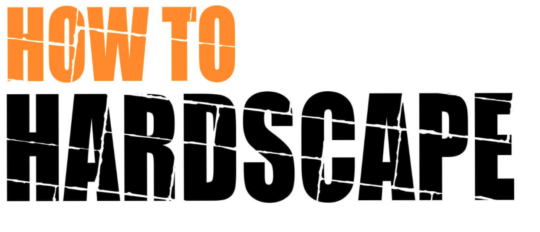
Sign up to get my next podcast


